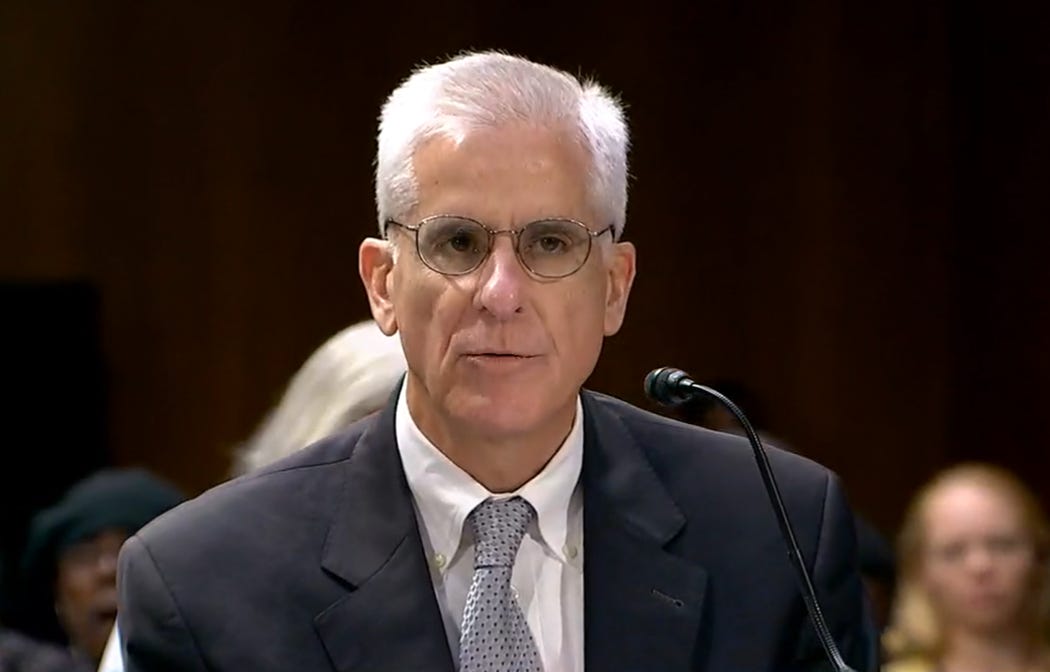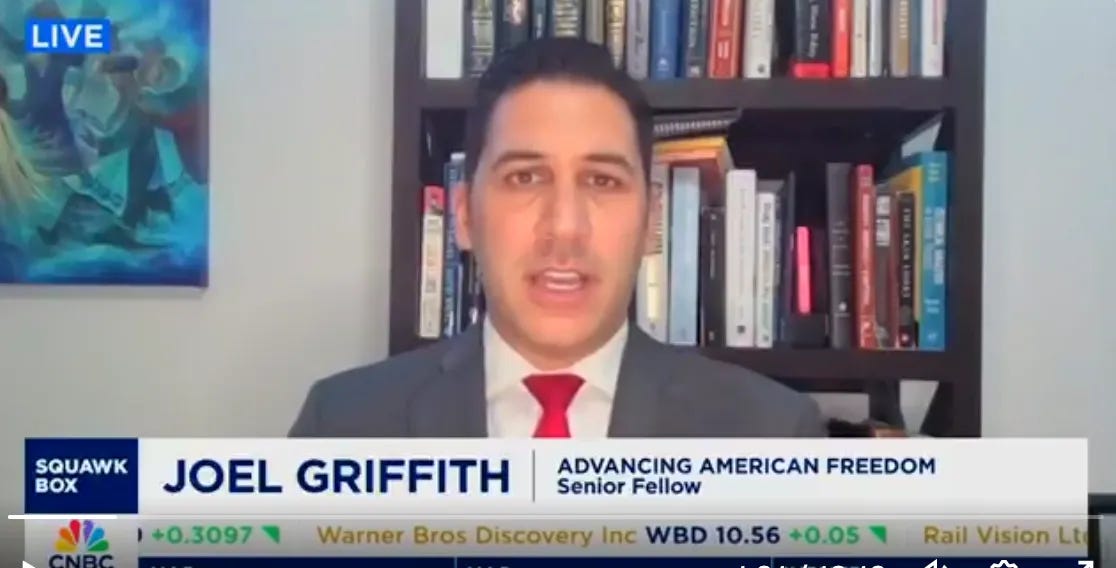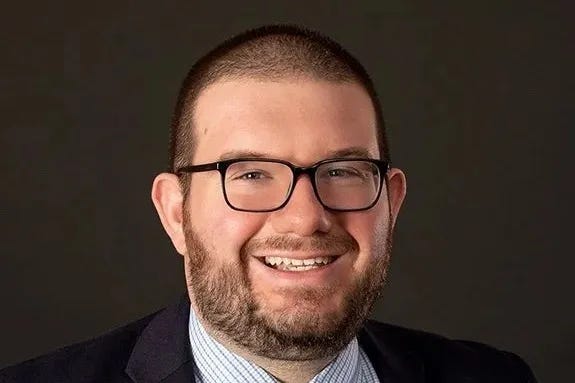Go big
FreeCons outline bold agenda on federal spending and entitlement reform
Neither the progressive Left nor the populist Right exhibits any real interest in tackling one of biggest threats to American prosperity, liberty, and leadership in the world: our rapidly escalating federal debt.
Freedom Conservatives see the matter very differently. In the FreeCon Statement of Principles, we committed ourselves to “building a constructive reform agenda that can restore America’s fiscal sustainability, ensuring that future generations inherit a more prosperous and secure nation than the one we now inhabit.”
For FreeCons, accepting reality as it is, not as one might wish it to be, is an essential element of what it means to be a conservative. After all, as Thomas Sowell once observed, “reality does not go away when it is ignored.”
In the context of federal deficits, that means accepting the necessity to reform Medicare, Medicaid, Social Security, and the other entitlements that form a growing share of federal expenditures.
Today we feature FreeCons who’ve accepted the challenge, grasped the “third rail” with both hands, and offered serious proposals for aligning Washington’s spending promises with economic and fiscal reality.
Slash drug costs
Gregg Girvan is a resident fellow at the Foundation for Research on Equal Opportunity (FREOPP) and a FreeCon signatory.
A former performance auditor for the state of Texas and policy analyst for the Utah legislature, Girvan has also worked for Booz Allen Hamilton, the Congressional Research Service, and the Heritage Foundation.
In a new FREOPP report, he recommended changes to the Medicare Drug Price Negotiation Program that would slash costs within one of the program’s most-expensive categories of spending.
These changes include adding more drugs to the program and setting more ambitious goals for price negotiations with pharmaceutical companies.
“If Congress implemented all of our policy recommendations,” Girvan wrote, “we expect Medicare will save an additional $90.4 billion compared to our baseline savings of $250.9 billion for the Medicare Drug Price Negotiation Program from 2028–2037.”
The industry argues that such reforms could “harm innovation by decreasing profits that fund research and development costs,” Girvan observed. “However, our research shows that the Medicare drug price negotiation program does not significantly harm innovation, and therefore could be strengthened to lower prices further.”
Well-targeted reforms
James C. Capretta is a senior fellow at the American Enterprise Institute, the author of US Health Policy and Market Reforms: An Introduction (2022), and a FreeCon signatory.
Capretta previously served as associate director of the White House’s Office of Management and Budget and as a Hill staffer for both the U.S. Senate Budget Committee and the U.S. House Committee on Ways and Means.
In a recent Law & Liberty article, Capretta argued that entitlement reforms based on “continuity and gradual change” are more likely to succeed than “sharp departures from the current program terms.”
“Changes are also likelier to gain political acceptance if they combine well-targeted additional support for the lowest-income households with other reforms that substantially lower the total cost of the main entitlement programs.”
Applying these principles, Capretta offered these core recommendations: 1) combine Medicare’s separate trust funds into a single fund with an enforceable cap on support from general revenues; 2) slow future growth of Social Security expenditures by such steps as raising the retirement age and reducing the income-replacement rate for upper-income retirees; 3) modify Medicare deductibles and payment rates; 4) restructure the market for medical services to promote transparency, competition, and innovation; and 5) limit eligibility for Medicaid to the truly poor and infirm.
“The United States has sufficient resources to pay for a sturdy system of social support while still incentivizing robust and dynamic growth,” he concluded. “But delivering on what is possible will require a change from the status quo. It is important to begin the needed process of reform as soon as possible.”
Grim choices
Joel Griffith is a senior fellow at Advancing American Freedom, founded by former Vice President Mike Pence. Griffith and Pence are also FreeCon signatories.
Formerly a research fellow at the Heritage Foundation, Griffith has held research positions at the American Legislative Exchange Council and the National Association of Counties.
In a Law & Liberty response to Capretta’s entitlement-reform piece, Griffith observed that when Social Security’s trust fund is exhausted, currently projected to be as soon as 2034, “Congress will face grim choices: substantially raise taxes, slash benefits to the bone, or borrow trillions to cover the shortfall.”
Treating Chile’s past pension reforms as a model, Griffith suggested that younger workers be allowed to enter a different system based on privately owned retirement savings.
“Those who opt out could be required to contribute to a mandatory savings account with automatic enrollment, automatic payroll deductions, and automatically managed investment plans to promote long-term growth,” he wrote. “At retirement, part of the account could be annuitized to provide a minimum standard of living, with the remainder available for discretionary use.”
Everything else being equal, of course, such a system would raise rather than lower federal deficits in the short run while reducing unfunded liabilities in the long run. Griffith proposed companion reforms — raising the retirement age and offering older workers lump-sum buyouts of future monthly benefits.
“Delay is the silent enemy of reform,” he wrote. “With each year we hesitate, the cost of fixing Social Security climbs higher, the burden on younger generations grows heavier, and the window to harness the miracle of compound growth narrows.”
Hearts and minds
Thomas Savidge is a research fellow at the American Institute for Economic Research and a FreeCon signatory.
Prior to joining AIER, he was a research director at the American Legislative Exchange Council focusing on tax and fiscal policy. He was a co-author of several publications focused on public pensions, public retiree benefits, bonded obligations, tax and expenditure limits, and state taxes.
In a Law & Liberty response to Capretta’s entitlement-reform piece, Savidge explained that “those of us advocating for entitlement reform cannot lose sight of why entitlement reform is important: sound reforms make it easier for Americans to find work, keep their hard-earned money, and remove barriers to quality care.”
One of Savidge’s recommendations is to further rein in “taxes” on Medicaid providers that are, in reality, little more than gimmicks that states use to draw down more federal funding.
“To reform entitlements,” Savidge concluded, “we must change hearts and minds.”
In the mix
• After the passing last week of Heritage Foundation co-founder Ed Feulner, his many FreeCon colleagues and friends mourned the loss while celebrating his long and indispensable service to our movement.
“The emergence of postwar movement conservatism owed much to a small group of people,” wrote the American Institute for Economic Research’s Samuel Gregg at Civitas Outlook. “Few, however, contributed as significantly to building the American Right’s organizational muscle than Ed Feulner.”
Other writers took to the (virtual) pages of National Review to describe those contributions. “Conservatism didn’t begin with Ed Feulner,” wrote Tim Chapman, his former chief of staff. “But without him, it may never have found its footing.”
“Time after time, cycle after cycle, crisis after crisis, it was Ed Feulner who provided the leadership that we conservatives needed,” wrote FreeCon signatory Neal B. Freeman.
• At RealClearEducation, FreeCon signatory Garion Frankel commented on the breakup of America’s largest teacher union with one of the country’s strongest opponents of antisemitism.
“After two years of tepid responses to the educational antisemitism that swept the nation in the October 7th Massacre’s aftermath,” wrote Frankel, a Young Voices contributor and doctoral student in education leadership at Texas A&M, “NEA delegates voted to suspend all ties with the Anti-Defamation League (ADL).”
Teacher unions have “chosen to sacrifice many of their most loyal and committed members for a political cause halfway across the world,” Frankel concluded. “Jewish educators should respond accordingly and look elsewhere for defense and support.”
• In the Washington Examiner, FreeCon signatory Tiana Lowe Doescher deflated claims by left-wing critics that the health-care reforms contained in the just-enacted reconciliation bill will wreak havoc among low-income Americans.
Many of the beneficiaries no longer eligible for Medicaid were never legally eligible, while others can retain coverage by working 20 hours a week, Doescher pointed out in her regular Examiner column.
“Even the CBO concedes that the total number of folks on Medicaid in nine years will be just 5 million fewer than the 85 million today, with spending up more than $200 billion per year in 2034. Only in Washington is a $200 billion hike considered a pay cut.”




